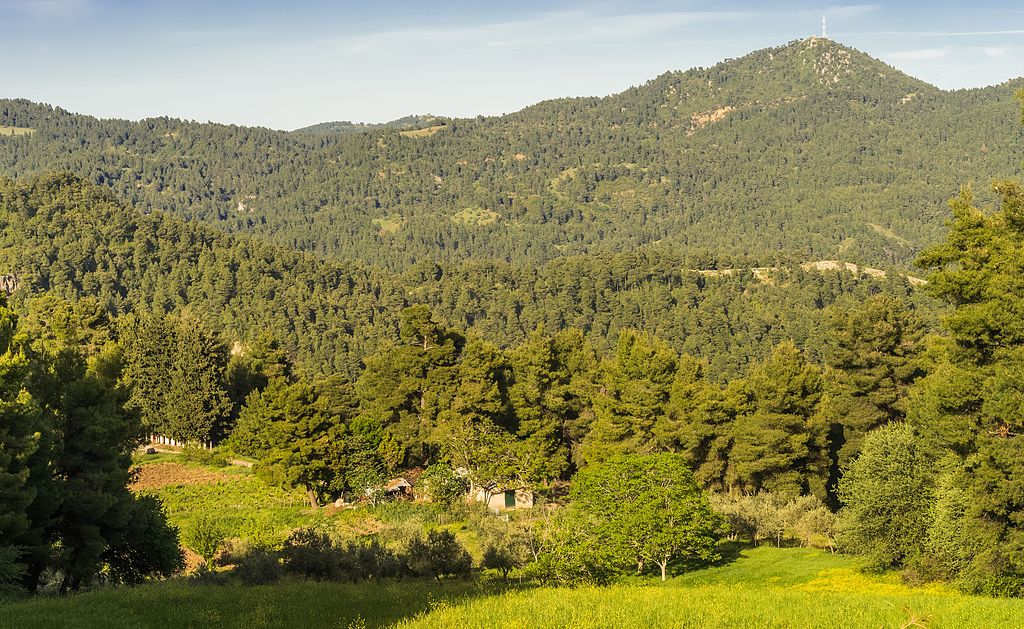Devastated twice in a decade (in 2012 and 2021) by wildfires, part of the Sounion National Park, 9 kilometers north of the ancient Temple of Poseidon that overlooks the Aegean Sea and about 40 kilometers south of Athens, could no longer regenerate naturally on its own.
The environmental organization WWF Greece (the Greek chapter of the World Wildlife Fund), in collaboration with the Greek government and support of private sponsors, has launched a pilot program that aims to restore part of the national park and show the way for the future of reforestation in Greece, their representatives told Xinhua recently.
In November and December 2022, approximately 15,000 tiny trees and bushes were planted in a 200,000-square-meter area next to the village of Agios Konstantinos near the national park. The 2021 wildfire has left behind only ashes and a few burnt tree trunks.
The area was part of the 125,000 hectares of forest and arable land, which were destroyed by multiple wildfires in 2021, according to the Greek government. The summer of 2021 witnessed the worst wildfire-linked catastrophe in the country since the 2007 wildfires that scorched 270,000 hectares.
Meteorologists and other experts connected the 2021 disaster to the worst heatwave the country experienced in three decades due to climate change. As climate change had intensified in recent years, the frequency and intensity of wildfires had also increased, WWF Greece said.
Under the pilot project, in late 2022, some 300 trained WWF volunteers helped to plant pines, oaks and 12 other categories of plants that were carefully selected based on scientific studies.
Pines and oaks had existed in the area prior to many wildfires in the past century, while other plants were chosen for their resilience to fires and climate change, said Nicos Georgiadis, forest management officer at WWF Greece.
“This restoration has clearly taken into account the climate crisis and all the parameters it brings. One of the main goals is to create a resilient forest, adapted to the climate crisis,” Georgiadis explained.
Scientists participating in the program were experimenting with various methods of planting and preserving the trees to improve the sustainability of the regenerated park and the area’s rich biodiversity, he said. Within the next two-three years, they would have a clear understanding of the success of the project.
“We are optimistic it will bring some new standards to how plantings and restoration of forest ecosystems should be done,” Georgiadis said, noting that several failures of artificial reforestation operations so far were attributed by experts to mistakes in planting and maintenance, as well as to the initial selection of plants.
Sounion’s pilot project also aims to protect, highlight and restore archaeological findings revealed during the marking stage. Archaeologists have been working next to scientists and WWF Greece representatives to identify areas of interest and antiquities.
Maria Stathi, an archaeologist of the Ephorate of Antiquities of East Attica, told Xinhua that the Lavreotiki area, where the national park is located, was known as a significant ancient mining district, and to date archaeologists had unearthed remains of ore cleansing workshops, cemeteries and residences.
“We had very good cooperation (in the project). Areas were excluded from the reforestation due to the archaeological findings,” she said.


